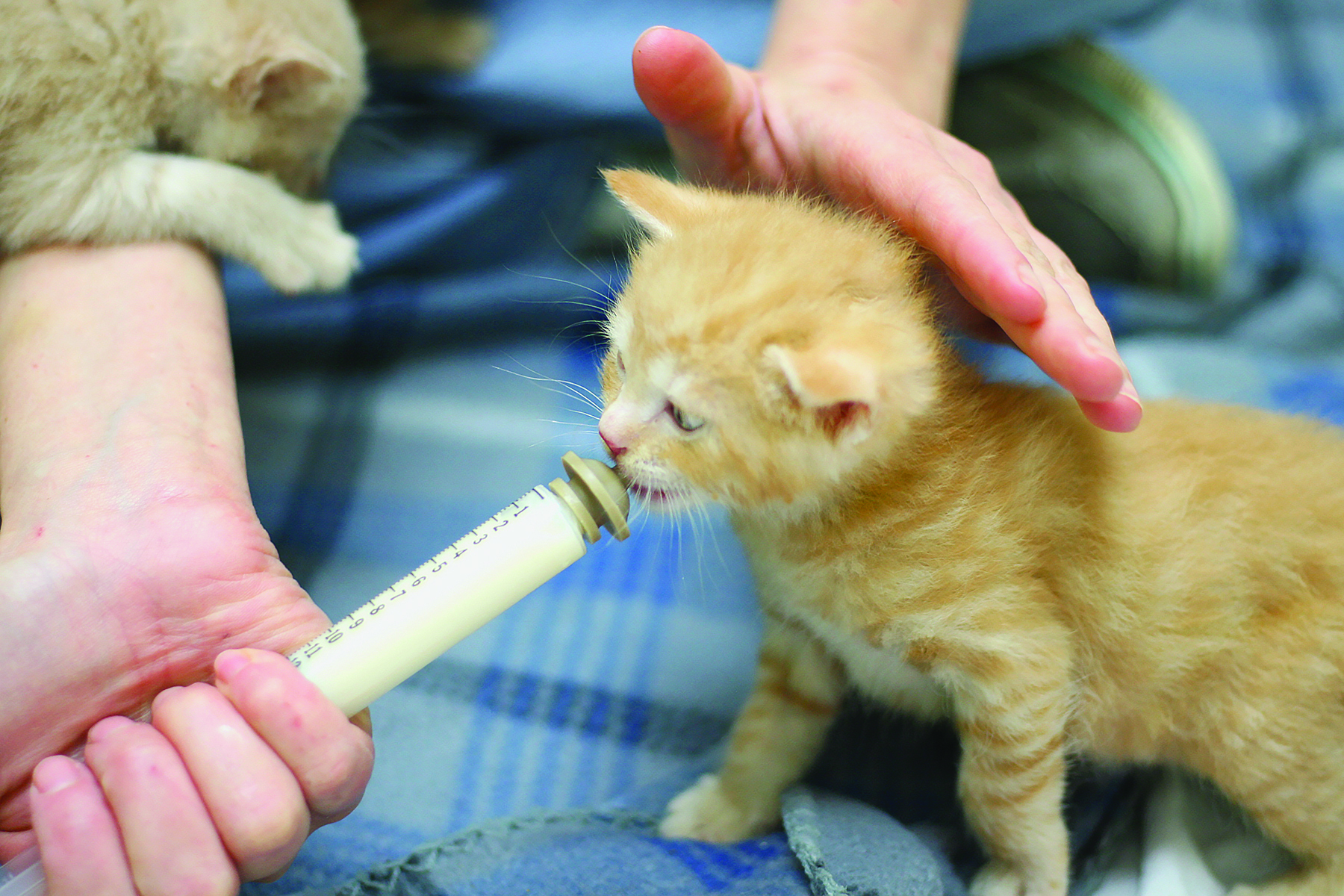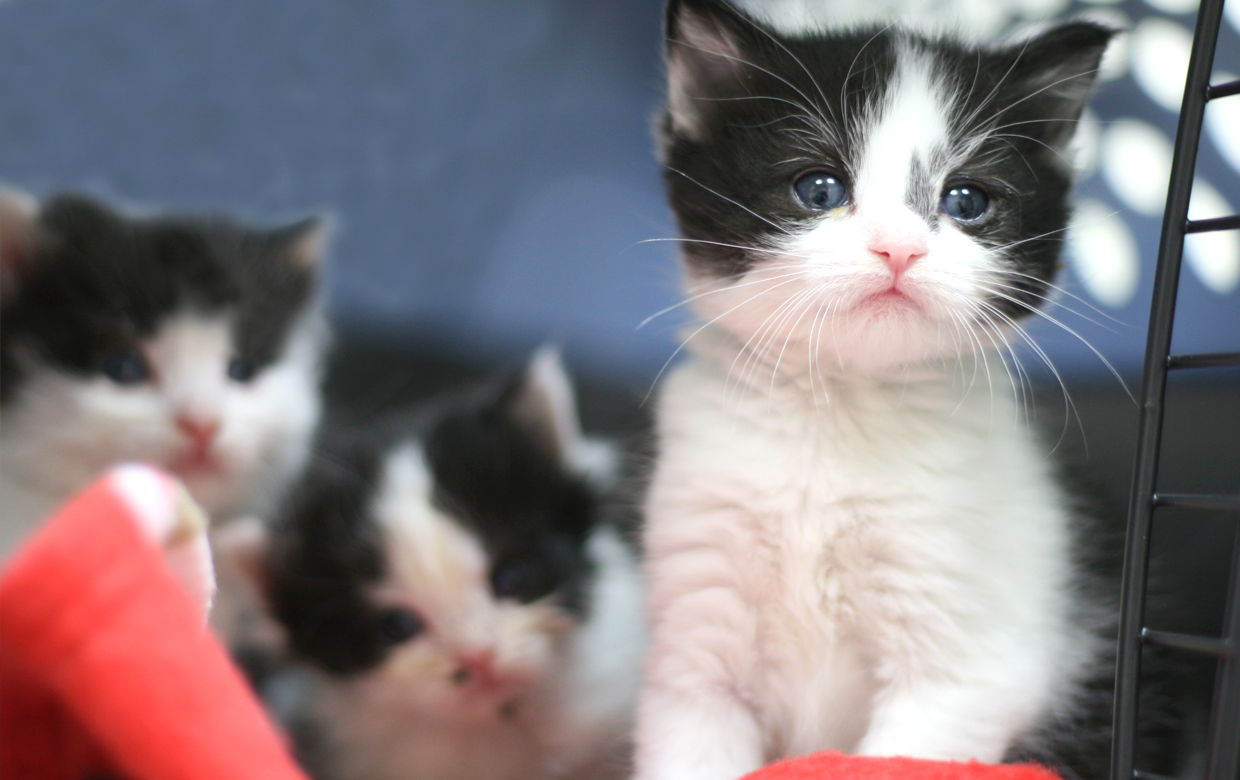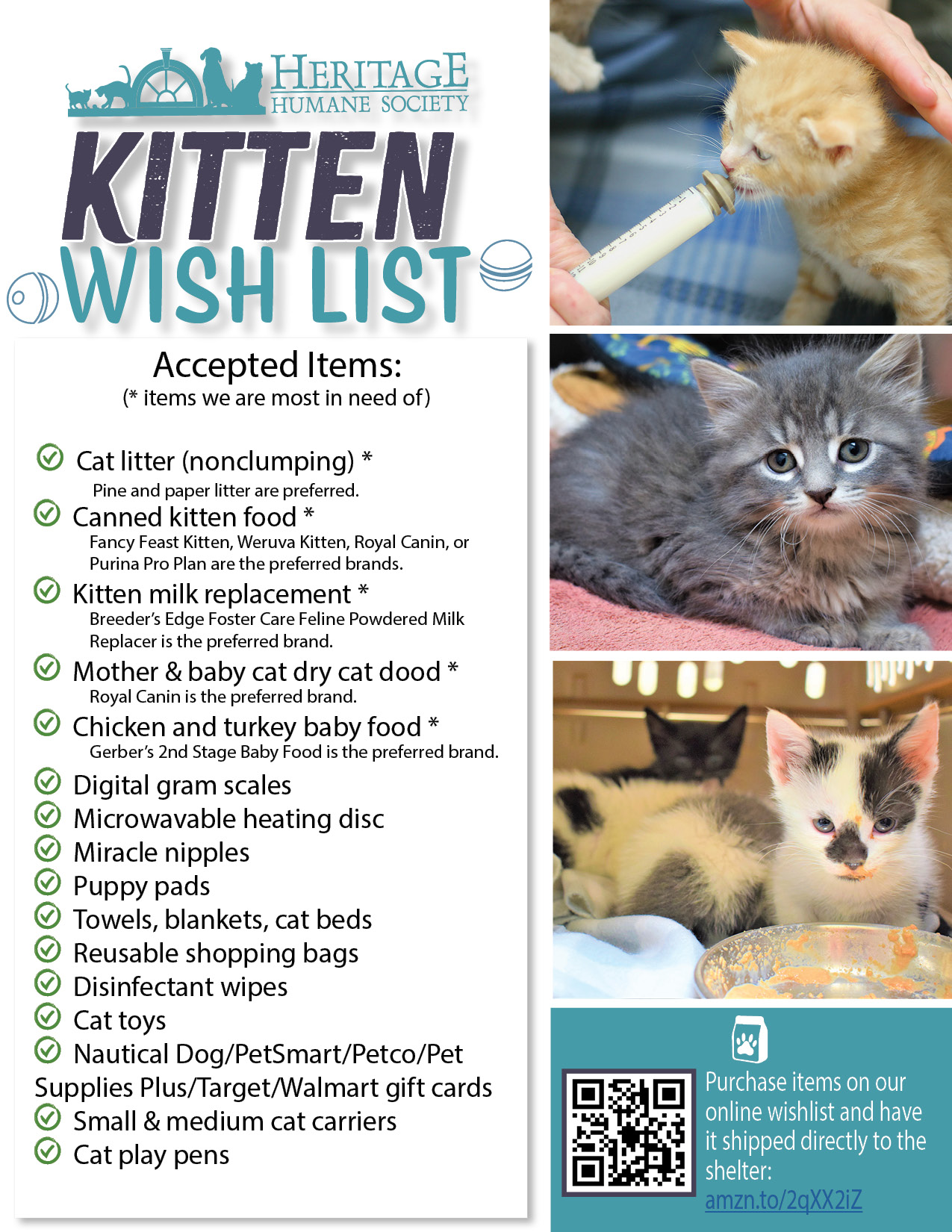So What’s Kitten Season?
As the weather gets warmer, many unaltered (not spayed) female cats go into heat. Many shelters (including Heritage Humane Society) receive an influx of orphaned kittens, pregnant cats, and nursing cats with kittens during this time. Sounds like cuteness in abundance, right? Who doesn’t love round kitten bellies and playtime all day long? Unfortunately, kitten season isn’t quite that. The resources required for caring for these kittens and cats are large and can be a strain on many shelters. Supplies, trained foster volunteers, medical resources and so much more have to be in place. In 2023, the shelter had 867 animals that were fostered including 496 kittens cared for and adopted by their forever homes.

What is a Litter?
A litter is the number of kittens that a female cat can have. On average, a cat can have between 4-8 kittens. Interesting fact: Because a cat can have on average 4-8 kittens in one litter, and a cat can be pregnant several times a year, the cat population tends to get bigger at a faster rate than the dog population. This is a reason why spaying or neutering is so important!
What do I do if I find stray kittens?
OK, so you found a litter of kittens. Now what?
First is to wait!
It is best to first observe from a distance for a few hours to determine if mom is returning to her kittens (unless the kittens are in danger or poor health). The mother cat may be out searching for food, taking a break, or even hiding from you. If you see kittens and no mom, wait a few hours before trying to rescue them. The kittens have a better chance of survival with their mom. Do not assume that their mama has abandoned them, they need their mother’s milk and it’s likely she is not far. The best thing to do is to monitor from a distance and wait for the mom to come back and then focus on trapping her. Once she is caught, the kittens will be easier to scoop up.
If the mother doesn’t return to the nest, or you find the kittens in poor health or danger, you may choose to remove the kittens. Please do not attempt to bottle feed unless you have correct bottle feeding training. CLICK HERE to view our hours of operation and contact information for Animal Control and local veterinarian hospitals (some open 24 hours a day). Caring for kittens is a huge commitment and animal professionals are available to help.
Please know we accept all companion animals from James City County, City of Williamsburg, and Upper York County. We are here to help, we are your resource. Have more questions? Our team is available to talk!
Heritage Humane Society
[email protected]
757-221-0150

Thinking About Adopting a Kitten?
Thinking of adopting a kitten? First, check out these helpful tips:
-
Find a kitten whose personality goes with yours. Not all kittens are the same! Some are shy, some are adventurous, some are very social, and some are a mixture! Make sure to talk to our Adoption Team when you are considering adopting a kitten. We want to find the right match for you!
-
Stock up on supplies before the kitten arrives. Kittens need a lot! Make sure you are prepared before the kitten comes home. Your kitten will need a litter box, cat litter, food and water bowls, food, scratching posts, kitten toys, and bedding.
-
Go slowly when introducing a kitten to your home. It can take weeks for a kitten to get comfortable in a new home (sometimes longer). It is always a great idea to seclude the kitten in a single room when it first comes home with you. This is particularly important if you have other pets. Socialization is critical for kittens, but always remember to take it slow.
-
If you’re thinking about adopting a kitten, consider adopting two. Kittens are a lot of work! They require exercise, mental stimulation, and social interaction. Two kittens in a household can provide this for each other. Plus they’ll provide you with countless adorable moments of playing with each other.
-
Kitten-proof your house. Heard of baby-proofing a house? Well, kitten-proofing a house is important too! Little kittens can get into all sorts of mischief and they can squeeze in tiny spaces that you would never think to search through. Be mindful of things that kittens could get into or chew on – extension cords, food lying out, small items like paper clips, etc.









